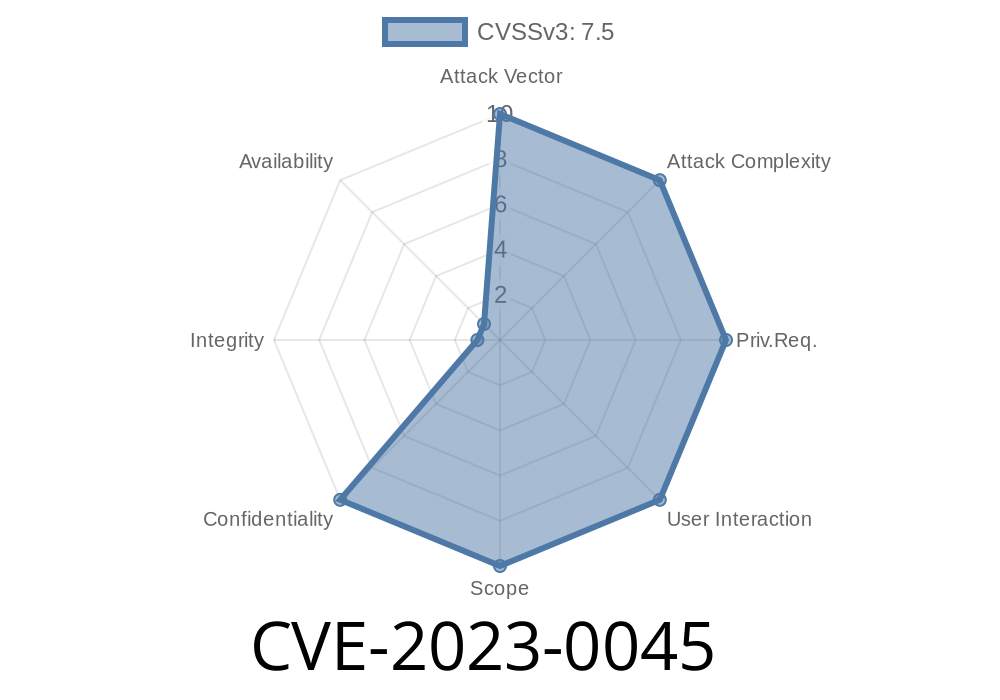CVE-2023-0045 discloses a subtle but high-impact vulnerability in the Linux kernel’s prctl system call, related to how Indirect Branch Prediction Barrier (IBPB) protections are handled. If you’re running Linux kernel version 4.9.176 or newer (but not patched past commit a664ec9158eeddd75121d39c9a0758016097fa96), your system may be at risk of speculative execution attacks—specifically, Spectre-like side-channel leaks.
Let’s break down the problem and see why this behavior is a concern, complete with code snippets, exploit details, and mitigation steps.
The Background: prctl, IBPB, and Spectre
Modern CPUs use speculative execution to speed things up. Unfortunately, this sometimes means that data can be speculatively accessed and later leaked via side channels, as attacks like Spectre have shown.
To counter these attacks, Linux can use the prctl system call (process control) to set up speculation controls for a running process. One of the controls, IBPB (Indirect Branch Prediction Barrier), flushes the CPU’s branch predictor to prevent attackers from influencing it and exploiting speculative execution.
The Vulnerability
Here’s the problem: the kernel function that sets speculation controls via prctl—called ib_prctl_set—doesn’t issue the IBPB flush immediately. Instead, it:
Calls __speculation_ctrl_update to set some processor state (via Model Specific Register, or MSR).
But the actual IBPB flush only happens later, the next time the kernel performs a context switch (task scheduling). This gives a time window where the victim process is still vulnerable to branch target buffer (BTB) manipulation—meaning an attacker could already have poisoned the prediction structures before the flush ever happens.
> In short: Setting IBPB via prctl doesn’t work immediately, so speculative attacks are still possible for a short time.
Code Snippet: Where Things Go Wrong
Here’s a simplified illustration from the kernel’s x86/speculation.c (comments added for clarity):
int ib_prctl_set(struct task_struct *tsk, unsigned long ctrl)
{
/* Set the flag for current thread */
tsk->thread.spec_ctrl = ctrl;
/* Now update speculation controls */
__speculation_ctrl_update(tsk);
/* But the IBPB MSR flush won't happen here! */
return ;
}
The actual IBPB flush only happens when a task is *scheduled* (context-switched), not instantly after this call. The code that handles it on context switch is roughly like this:
void switch_to(struct task_struct *prev, struct task_struct *next)
{
if (next->thread.spec_ctrl != prev->thread.spec_ctrl) {
/* Now issue the IBPB! */
wrmsrl(MSR_IA32_PRED_CMD, PRED_CMD_IBPB);
}
// Continue context switch...
}
The gap: Between the prctl call and the next context switch, BTB may be attacked.
Exploit Details
An attacker can use this window to poison the BTB so that, even after a victim process calls prctl to protect itself, forced speculative leaks can still be triggered. Here's a simple attack flow:
The victim process calls prctl to request IBPB protection.
4. The attacker immediately tries to exploit Spectre-type vulnerabilities, while the branch predictor is still tainted.
The actual flush only happens at the next unscheduled time—a context switch.
Result: Data could be leaked before the flush finally kicks in!
Visual Timeline
Attacker primes BTB → Victim calls prctl() → TIFs updated, no IBPB yet → Attacker races to exploit → IBPB finally issued on context switch
Patch and Fix
The fix is to make the IBPB flush immediate when prctl is called, not delayed until the next context switch.
Recommended action:
Upgrade past commit a664ec9158eeddd75121d39c9a0758016097fa96
Patch discussion:
- LKML Patch
Timely kernel updates and security patches are the only way to eliminate the risk. Always check your distribution’s vulnerability advisories or use tools like uname -a to check your kernel version.
Resources and References
- CVE-2023-0045 Details on MITRE
- Linux kernel commit a664ec9158ee
- Spectre Attack Explanation (Project Zero)
- Speculative Execution Side Channel Mitigations
Conclusion
CVE-2023-0045 is yet another reminder that the smallest implementation details can lead to big holes in system security, especially with speculative execution vulnerabilities. For sysadmins and developers, always stay updated; for regular users, apply security updates as soon as they become available.
Timeline
Published on: 04/25/2023 23:15:00 UTC
Last modified on: 05/05/2023 15:54:00 UTC
